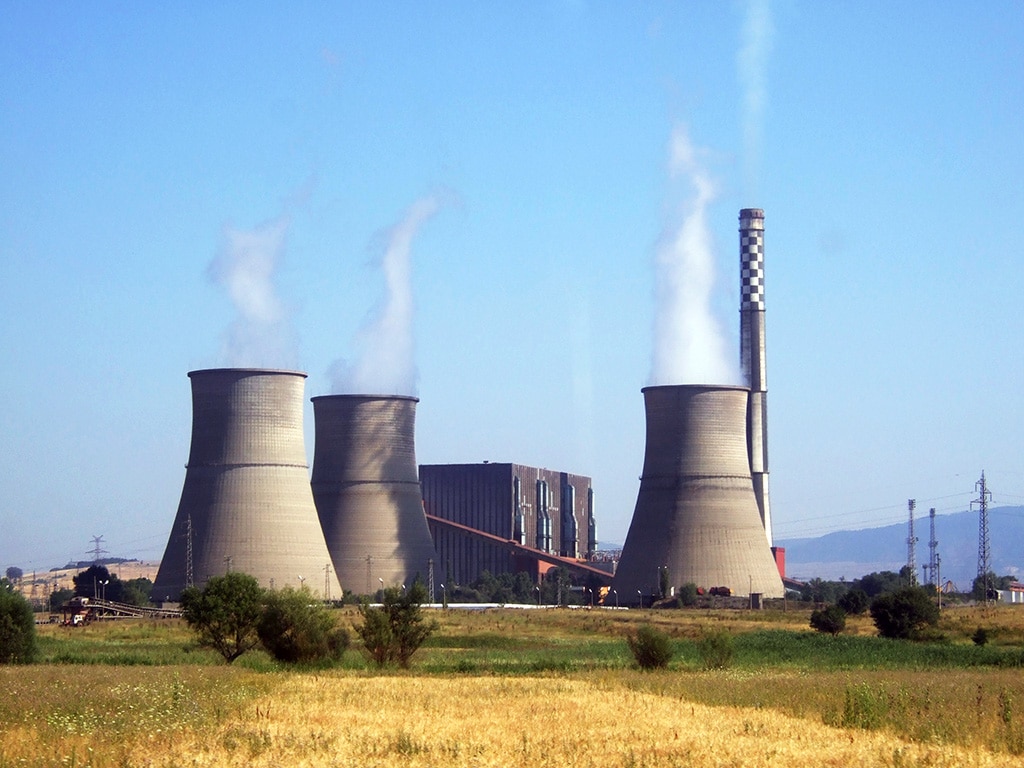Can coal be a ‘sustainable’ fuel at the heart of strategies to combat poverty? That’s the line of argument an event hosted by the United Nations Economic Commission for Europe (UNECE) and the World Coal Association this week will aim to promote.
But a new report published today by the Overseas Development Institute (ODI) argues the exact opposite is true.
It says increasing the number of coal power plants around the world will not deliver universal energy access or help to eradicate extreme poverty.
Released on the eve of the two-day coal conference in Geneva, the Beyond Coal report concludes that building just one third of the some 2,400 coal-fired power plants currently in the pipeline would lead to negative health impacts and take the world past 2C of warming, preventing the world’s poorest people from lifting themselves out of poverty.
Alternative Development Pathways
The report was produced by 12 poverty and development organisations including CAFOD, Christian Aid, Oxfam, India-based organisations the Vasudha Foundation and the Council on Energy, Environment and Water, and Indonesia’s Institute for Essential Service Reform.
Ilmi Granoff, report co-author and research associate with the Climate and Energy Programme at ODI, said: “There’s no question that rich economies must rapidly replace coal with low-carbon energy to avoid a climate crisis.
“But now the coal industry continues to spread false claims that coal is critical to fighting extreme poverty and improving energy access in poorer countries.”
On 26–27 October, the UNECE and World Coal Association will hold a session focused on “cleaner electricity production from fossil fuels”.
As the event website details, industry officials and policymakers will discuss the “barriers to improving the sustainability credentials of coal and a pathway whereby it can be considered as part of the overall clean energy mix while delivering on the social, economic and environmental pillars of sustainability.”
The ODI report argues coal is not a sustainable option, however, and that more coal will not end poverty. In fact, it will entrench it.
“Coal expansion as currently planned is enough to push climate change to catastrophic levels,” the report states. “A changing climate already disproportionately hits the poorest people with least resources to enable them to adapt.”
Energy Poverty
The report goes on to analyse the main misleading claims about coal and energy poverty.
As it explains, there are two types of energy poverty: a lack of access to electricity, and a lack of access to clean and safe cooking fuel.
The biggest barriers to connecting those without electricity who live close to the grid are a lack of political will, power section mismanagement and the cost of connecting new households it explains. This won’t be solved by new power plants alone (coal-fired or otherwise) the report states.
Meanwhile the vast majority of those without access to electricity are those who live in rural areas where it would cost much more to reach centralised electricity grids. ODI argues that the quickest and cheapest option to bring electricity to two thirds of this group would be to set up a decentralised renewables system.
Providing easy access to clean and safe cooking, it notes, has little to do with electricity access in the near-term but rather requires access to cleaner fuels and more efficient cookstoves.
Taking a closer look at the historic role played by coal in eradicating extreme poverty, the report finds that there is reason to be sceptical of coal’s supposed power to transform emerging economies.
“Close analysis shows that, in fact, two thirds of the decline in extreme poverty in East Asia was driven by improvements to agricultural productivity and macroeconomic policies before 1987,” the report reads. “Industrialisation played a critical role in increasing the income of the middle class and even moderately poor people, especially in cities, but it can be credited with less than one quarter of the celebrated decline in extreme poverty in China between 1981 and 2004.”
Health Impacts
Adding more coal power would further work against efforts to eradicate extreme poverty due to its health and climate impacts, the report continues.
Coal is a major cause for air pollution, which increases the risks of premature deaths, heart disease, and lung disease. And as the report points out, even so-called ‘clean coal’ emits more pollution than natural gas and much less than renewable energy.
In addition, coal extraction is extremely water-intensive. This means that sometimes, such as during a drought, access to valuable water resources can be scarce as it’s being consumed by thirsty coal plants.
In an interview with Reuters, Sarah Wykes, lead analyst on climate change and energy issues for Catholic international development charity, CAFOD, said: “There are myths that we’re trying to pull up the ladder and deny developing countries the chance to develop the way we did.
“But you don’t need these kinds of dirty fuels anymore for economic development. There are much better clean alternatives.”
Countries should instead be looking to renewables, the report argues: “For the first time in history, there are renewable energy options that are highly competitive with coal in nearly all markets.”
“Governments need to prioritise renewable energy investments and develop power sectors that support and integrate them. Coal is a 19th century technology and today’s challenges are best met with 21st century technologies.”
Photo: Boby Dimitrov via Wikicommons CC 2.0
Subscribe to our newsletter
Stay up to date with DeSmog news and alerts







